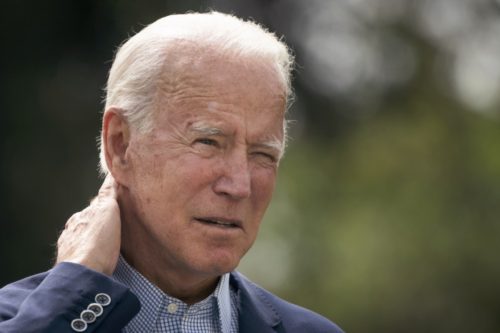When Germany’s election results were announced on Feb. 23 at the packed headquarters of the far-right Alternative for Germany (AfD) in Berlin, the hall erupted into wild rejoicing. The party’s leadership, among it frontperson Alice Weidel, and hundreds of supporters waving German flags immediately recognized the party’s 21 percent tally as a conspicuous victory—exactly twice its 2021 result—even though the conservative Christian Democrats (CDU) won more votes by 8 percentage points, and with this the mandate to form a government.
Despite the fact that Germany’s other parties refuse to govern with it, the AfD—an extremist xenophobic party with ties to neo-Nazis—has definitively broken out of the margins and is positioned squarely at the center of German politics. It is now Germany’s second-strongest party; the largest opposition party in the Bundestag; the favored party of the working class; the no. 1 party in Germany’s eastern states; a darling of the new U.S. administration; and it also boasts representation in the regional legislatures of all but one German state and in the EU parliament, too, where it is buttressed by like-minded allies.
When Germany’s election results were announced on Feb. 23 at the packed headquarters of the far-right Alternative for Germany (AfD) in Berlin, the hall erupted into wild rejoicing. The party’s leadership, among it frontperson Alice Weidel, and hundreds of supporters waving German flags immediately recognized the party’s 21 percent tally as a conspicuous victory—exactly twice its 2021 result—even though the conservative Christian Democrats (CDU) won more votes by 8 percentage points, and with this the mandate to form a government.
Despite the fact that Germany’s other parties refuse to govern with it, the AfD—an extremist xenophobic party with ties to neo-Nazis—has definitively broken out of the margins and is positioned squarely at the center of German politics. It is now Germany’s second-strongest party; the largest opposition party in the Bundestag; the favored party of the working class; the no. 1 party in Germany’s eastern states; a darling of the new U.S. administration; and it also boasts representation in the regional legislatures of all but one German state and in the EU parliament, too, where it is buttressed by like-minded allies.
Perhaps, though, most critically: The election campaign illustrated just how fundamentally the AfD—as a party operating exclusively from opposition rows—can leverage a crude racist populism to swing the country’s political discourse and move rivals in its direction. The AfD’s cudgel was migration, which it wielded ruthlessly to force every other party (save the democratic socialist party, The Left) to harden their positions on the treatment of asylum-seekers, political asylum as such, policing practices, labor migration, and border policies. Every one of those parties paid a price at the urns for their acquiescence. The Left, on the other hand, was the only democratic party to significantly better its 2021 result and outperform the polls.
This applies to the CDU and Germany’s likely next chancellor, Friedrich Merz, too—and will follow them into the chancellery. In response to the AfD’s drumbeat and a series of tragic, violent incidents involving asylum-seekers in Germany, Merz threw caution to the wind in late January, just weeks before the vote, to switch the campaign’s focus from the economy, Merz’s specialty, to migration, the AfD’s bugbear. Merz went so far as to propose a raft of measures restricting migration from the Bundestag floor with the help of AfD votes—a step he and other mainstream politicos pledged they would never take—thus further eroding the anti-AfD “firewall” that the centrist parties vowed to respect.
With eyes wide shut, the CDU walked into a trap that has spelled the marginalization or even disappearance of center-right parties across Europe: By taking up the call of the far right, Europe’s conservatives feed the extremists that voters ultimately deem more authentic or convincing on their own bread-and-butter issues—at the conservatives’ expense. While the CDU captured more votes than the AfD, its 28.5 percent showing counts as its second-lowest ever and several points below its polling before Merz’s controversial maneuver. Like in France, Italy, and the Netherlands, as well as across Central Europe, the center right’s adoption of far-right positions played right into the court of radicals. Election data shows that the CDU and the Social Democrats (SPD) lost voters to the AfD.
The CDU can’t claim a “resounding victory,” concluded ARD, Germany’s public broadcaster. “Instead, it is well above the worst-ever 2021 tally of 24 percent, but far below the 42 percent that Angela Merkel’s CDU captured in 2013. Why is that?” the broadcaster asked. “It’s a combination of the generally difficult situation, the aftereffects of the Merkel era, mistakes made by the CDU leadership, but certainly also competition from the right. … Merz’s goal was not to leave the topic of migration to the AfD. … Did this tactic work? The numbers suggest: probably not.”
“Parties such as the AfD thrive on the longing for authority and security, and the current government [led by SPD] conveyed the opposite,” opined the daily Tageszeitung. “This is where the incessant crisis rhetoric of the right, whose slogans of ‘foreigners out’ offer a simple solution using authoritarian means, catches on,” social psychologist Oliver Decker told the media outlet. The fact that the centrist parties have jumped on the migration issue has not weakened the AfD, but rather legitimized it, he concluded.
[hrthin]
The AfD was born in 2013, not as an extremist party but as an EU-critical collection of nationally minded neoliberal economists who questioned Germany’s role in Europe’s 2009-10 financial crisis and the replacement of the Deutsche mark, Germany’s postwar currency, with the euro. But soon after its founding, the party started creeping to the right—its earliest successes happening in Germany’s eastern states, which have proved its bastion ever since. “Initially, the AfD appealed to older voters who considered themselves conservative but were disenchanted with Merkel,” Rüdiger Maas, the author of bestselling books on Germany, told FP.
The east was fertile soil for the increasingly hard-right party: Easterners expressed broad disappointment with unification, which they felt had treated them unfairly and turned them into second-class citizens. The east’s economic transition—a bill footed by the state to the tune of $2 trillion—resulted in rampant unemployment and, to this day, lower wages and living standards for those in the east. (That is, for those who didn’t flee it: Around 3.6 million people left.)
Moreover, the easterners had very little experience with migration, foreign cultures such as Islam, and coexistence with non-Germans. The first nonwhite migrants in the 1990s were often confronted with naked violence; a hard-right neo-Nazi scene flourished and even dominated rural locations. When over a million migrants streamed into Germany from 2015 to 2016, those who settled in the east faced hostility and deep-seated resentment. The AfD radicalized, as did the eastern Germans: above all, the non-college-educated, male, rural-situated, and over-40 voters, who constituted the party’s mainstay.
“From the very beginning, the AfD was a male party that appealed above all to men,” Daniela Rüther, an historian at Bochum University, told FP. “Like every völkische Bewegung (ethnically defined national movement) in German history, it puts the traditional family with its male-led hierarchy at the center of the community. Some of its gender policies are taken directly, one-to-one, from the Nazis.” The fact that the AfD is today led by a (gay) woman in Weidel only appears to be a contradiction, Rüther said. Were the AfD to come to power, she said, Weidel would be sidelined just as the female antagonist of Serena Joy is in the conservative revolution in Margaret Atwood’s novel The Handmaid’s Tale.
As the AfD entered eastern German legislatures, it simultaneously shed its liberal sensibilities for an ever more hard-right archconservatism. The AfD swung sharply to the far right, adopting ever more radical positions on migration, Islam, the climate crisis, and foreign nationals in Germany, as well as an affinity for President Vladimir Putin’s Russia, latent antisemitism, and a rebuttal of Germany’s self-critical approach to its World War II past.
Its stunning electoral successes, however, first came in response to the refugee crisis. In 2016 and 2017, it stormed into regional legislatures in western Germany and then with tallies above 20 percent in several of the eastern states. In the east, a West German-born fortysomething and former schoolteacher named Björn Höcke gained prominence as the leader of the AfD’s most radical branch, called Der Flügel. Höcke made no bones about his sympathies for the Third Reich and disdain for Western-style democracy. Höcke, for example, referred to the Holocaust memorial in central Berlin as a “monument of shame,” the kind of breach of German taboo that many observers, including relative moderates in the party, thought would disqualify him from German politics. These views attracted the attention of Germany’s intelligence services, which put several of the eastern party branches, including Höcke’s, under surveillance.
On the contrary, Höcke and his allies helped the party chalk up ever larger tallies. In 2019, he led the Thuringia AfD to a 23 percent showing and then five years later to capture 33 percent of the vote—making it Thuringia’s strongest party, another milestone.
[hrthin]
Yesterday, in Thuringia, Höcke took the party to a new record high: a full 38 percent of the vote. So tenuous are the democratic parties’ hold on Thuringia that they agreed last year to govern in a desperate, ungainly coalition of CDU, SPD, and the left-populist Sahra Wagenknecht Alliance. But at least the firewall held. Another grim statistic: In the east, it’s no longer old voters who back the party but rather the youngest: One in three male voters under 24 cast their ballot for the AfD. “These young people grew up with the AfD,” Maas explained. “In many cases their parents were the first AfD voters. For them, the AfD was always part of the Bundestag, talk shows, regional politics.” Moreover, Maas said, this generation gets its politics from social media, mostly TikTok, which the far right (and the far left) swamped with their messages.
In yesterday’s poll—as in the June 2024 EU parliament vote—the AfD swept the five eastern states: its bright blue party color standing in stark contrast to the jet black of the western states, the CDU’s color. This is Germany: a country divided between democratic and undemocratic archconservatives. From the AfD’s point of view, a coalition between conservatives and the right makes all the sense in the world. It looks natural in light of the striking overlap, not least on migration. Their voters share similar concerns. But the Christian conservatives remain adamant that it will never happen. “Never again” was the promise of the postwar generation that Germany would never be home to a fascist politics again. As one of the placards at the anti-right demonstrations across Germany earlier this month proclaimed: “Never again is now.”






























 A man and woman are seen at center as a military parade with soldiers in uniform playing instruments pass by on a cobblestoned street.
A man and woman are seen at center as a military parade with soldiers in uniform playing instruments pass by on a cobblestoned street. Woodrow Wilson sits in a chair holding a letter. Behind him is a desk stacked with books.
Woodrow Wilson sits in a chair holding a letter. Behind him is a desk stacked with books.

